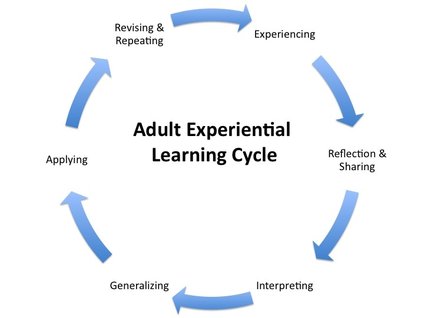
Part of being an effective facilitator involves understanding how adults learn best. Compared to children and teens, adults also have special needs and requirements. Despite the apparent truth, adult learning is a relatively new area of study.
The field of adult learning was pioneered by Malcom Knowles. He identified the following characteristics of adult learners:
Adults are autonomous and self-directed. They need to be free to direct themselves. Their teachers must actively involve adult learners in the learning process and serve as facilitators for them. Specifically, they must get learners' perspectives about what topics to cover and let them work on projects that reflect their interests. They should allow the learners to assume responsibility for presentations and group leadership. They must be sure to act as facilitators, guiding learners to their own knowledge rather than supplying them with facts. Finally, they must show learners how the training room will help them reach their goals (e.g. via a personal goal sheet).
Adults have accumulated a foundation of life experiences and knowledge that may include work-related activities, family responsibilities, and previous education. They need to connect learning to this knowledge/experience base. To help them do so, they should draw out learners' experience and knowledge which is relevant to the topic. They must relate theories and concepts to the learners and recognise the value of experience in learning.
Adults are goal-oriented. Upon enrolling in a course, they usually know what goal they want to attain. They, therefore, appreciate an educational programme that are organised with clearly-defined elements. Training facilitators must show learners how this training will help them attain their goals. This classification of goals and course objectives must be done early in the course.
Adults are relevancy-oriented. They must see a reason for learning something. Learning must be applicable to their work or other responsibilities to be of value to them. Therefore, training facilitators must identify objectives for adult learners before the course begins. This means, also, that theories and concepts must be related to a setting familiar to learners. This need can be fulfilled by letting learners choose projects that reflect their own interests.
Adults are practical, focusing on the aspects of a lesson most useful to them in their work. They may not be interested in knowledge for its own sake. Training facilitators must tell learners explicitly how the lesson will be useful to them on the job.
Adults, as all learners, need to be shown respect. Training facilitators must acknowledge the wealth of experiences that adult learners bring to the training room. These adults should be treated as equals in experience and knowledge and allowed to voice their opinions freely in class.
Click here to view a video that explains the adult learning techniques.